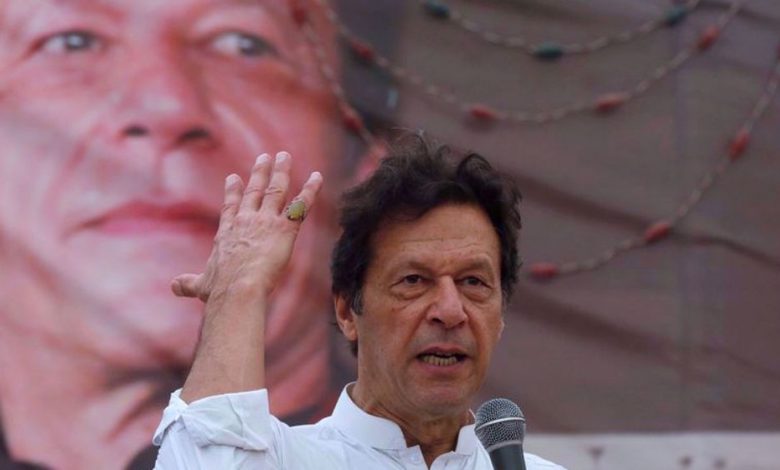Pakistan parliament rejects Khan’s no-confidence motion over ‘foreign’ interference
The Pakistani parliament has rejected a no-confidence vote that seeks to oust Prime Minister Imran Khan, saying "foreign powers" are interfering in the country's democratic process.

Qasim Khan Suri, National Assembly deputy speaker, dismissed the no-trust move against the prime minister on Sunday, terming it as “contradictory” to Article 5 of Pakistan’s Constitution.
Suri said that the motion was presented on March 8 and should be according to the law and the Constitution, stressing, “No foreign power shall be allowed to topple an elected government through a conspiracy.”
The president later dissolved the National Assembly on Khan’s advice.
“The President of Pakistan, Dr Arif Alvi, has approved the advice of the Prime Minister,” a statement from his office said, meaning fresh elections must be held within 90 days.
The opposition vowed to challenge the move in the country’s Supreme Court.
Khan’s fate is now in a state of limbo which would lead to fresh political instability in the country.
Bilawal Bhutto Zardari, head of the opposition Pakistan People’s Party (PPP), promised a sit-in at the parliament. “We are also moving to the Supreme Court today,” he told reporters.
The opposition needs a simple majority of 50 percent plus one to topple the ruling Pakistan Tehreek-i-Insaf (PTI) government.
Khan needs 172 votes in the 342-seat house to foil the bid. Some defections in the PTI and cracks in his coalition partners have dented his chances to accumulate the 172 votes, needed to hold on to power.
Media reports said there was a heavy police and paramilitary presence on the streets of the capital Islamabad on Sunday, with shipping containers used to block off roads. Police were seen detaining three supporters of Khan’s ruling PTI party outside parliament.
Khan on Saturday accused the United States of being behind a parliament debate on the no-confidence motion, saying the move is an attempt at regime change backed by Washington.
The Pakistani premier had earlier accused an unnamed “foreign power” – in a clear reference to the United States – of funding a “conspiracy” to topple his democratically-elected government.
If Khan had lost on Sunday, he would have been the first prime minister to be removed through a vote of no confidence.
The cricketer-turned-politician has been accused by the opposition of mishandling the economy and foreign policy since coming to power in 2018.
His embattled government has been banking on the International Monetary Fund (IMF) to release a 6 billion-dollar rescue package, but the move has been obstructed by the US.







